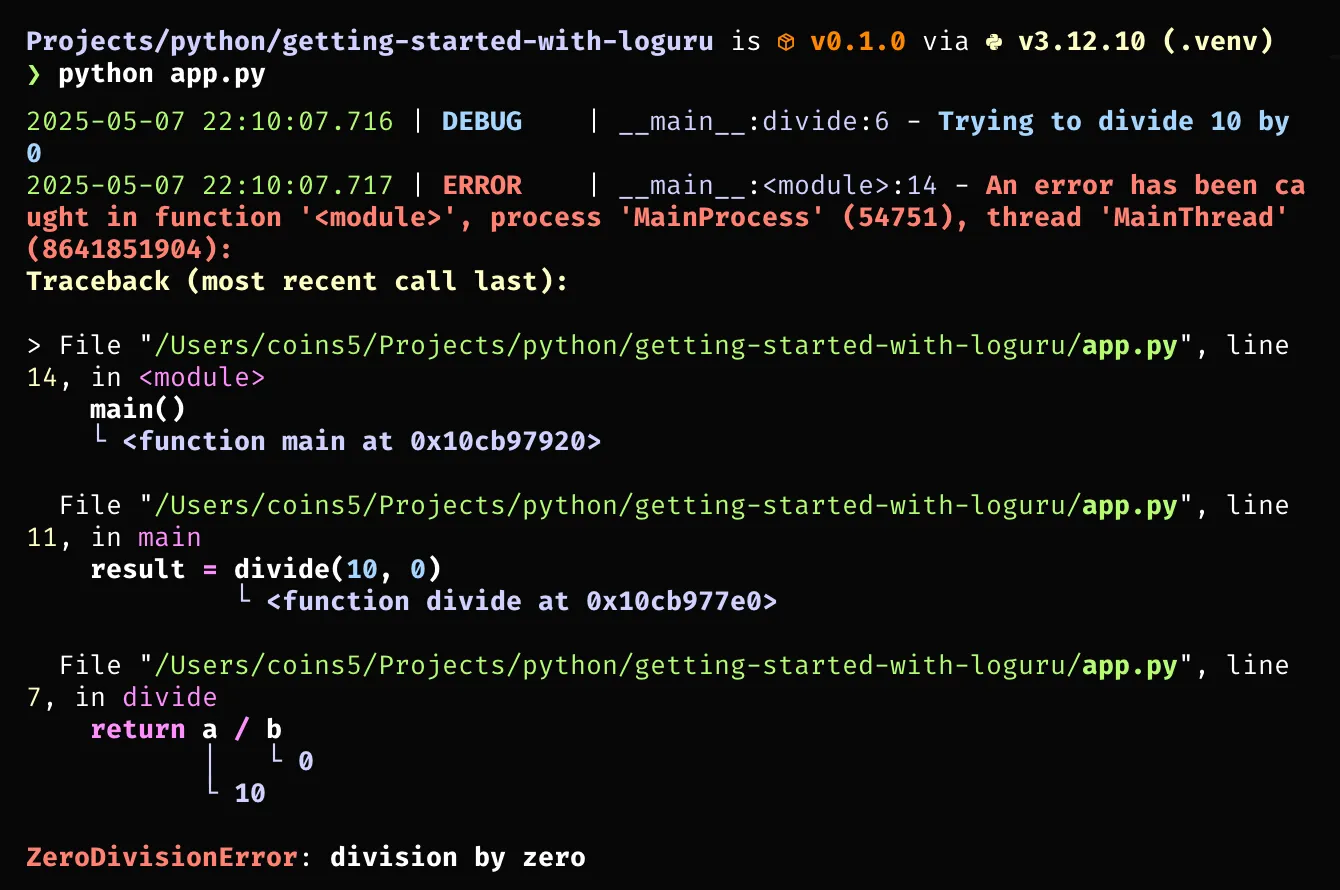
Getting started with Loguru
Written by: Marlon Colca
Posted on 01 May 2025 - 5 months ago
python logging loguru
In this post, I'll walk you through the basics of Loguru and how to use it to level up your logging game.
- 01Getting started with Loguru
- 02
- 03
- 04
- 05
- 06
Logging is a must-have in web development and backend systems. It helps you understand what your app is doing, spot bugs, and improve observability. Python comes with a built-in logging module, but configuring it can feel like overkill for many common tasks.
That’s where Loguru comes in — a simple yet powerful logging library that makes logging in Python way more enjoyable.
Why use Loguru instead of the built-in logging module?
The standard Python logging module is flexible but verbose. Loguru simplifies the most common logging needs:
-
No boilerplate configuration.
-
Beautiful, colorful logs out of the box.
-
Built-in support for log rotation.
-
Automatic exception capturing.
Installation
Just install it with pip:
pip install loguruGetting Started
from loguru import logger
logger.info("Hello world from Loguru")Just one line and you’re already logging with timestamps, levels, and colors in your terminal.
Writing to a File with Rotation
logger.add("logs/app.log", rotation="500 KB", level="DEBUG")This writes logs to app.log and rotates the file once it reaches 500 KB. It also captures logs from the DEBUG level and up.
For more details, see the Loguru documentation.
Exception Logging
@logger.catch
def buggy_function():
return 1 / 0
buggy_function()With @logger.catch, Loguru will log uncaught exceptions automatically, along with a full stack trace.
Best Practices
-
Use
logger.debug()for internal dev logs. -
Use
logger.info()for standard events. -
Use
logger.warning()for things that might go wrong. -
Use
logger.error()orlogger.critical()for serious issues. -
Configure log rotation and retention in production.
-
Avoid logging sensitive user data.
Complete Example
from loguru import logger
logger.add("logs/debug.log", rotation="1 MB", retention="10 days", level="DEBUG")
def divide(a, b):
logger.debug(f"Trying to divide {a} by {b}")
return a / b
@logger.catch
def main():
result = divide(10, 0)
logger.info(f"Result: {result}")
main()
Final Thoughts
Loguru is a great tool if you’re building Python web apps. It’s easy to plug into frameworks like Flask, FastAPI, or Sanic (which I use often), and gives you structured, readable logs with minimal effort.
🔜 Coming up next

Getting Serious with Loguru: Real-World Configuration
Now it's time to take logging seriously
02 May 2025 - 5 months ago